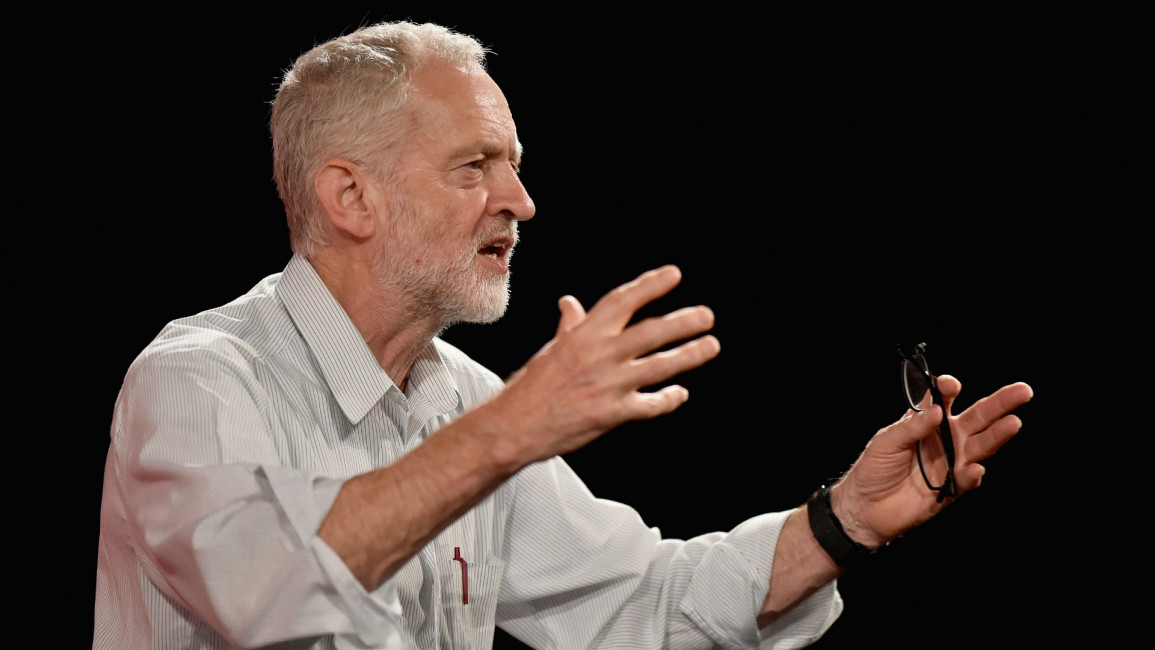
The 'earth moves' as Corbyn becomes UK opposition leader
In a sign of things to come in UK politics, Jeremy Corbyn's first public act as Labour leader following his stunning election victory was to address a huge London rally in support of refugees.
The Refugees Welcome Here rally, which attracted tens of thousands of people, was described by Corbyn as "a demonstration in support of refugees, the right to asylum and the human needs of people all over the world".
| Tragically, wars don't end when the last bullet is fired, or the last bomb is dropped - Jeremy Corbyn |
He called on the UK government to live up to its legal obligations under the 1951 Geneva Convention on the Right to Asylum, and as a member of the Refugee Council and the Human Rights Council.
"You don't need to walk in fear of the far-right and racists," he said, referred to the ruling Conservatives' reticence on the issue, at a time when public opinion has been clearly supportive of the refugees, despite the anti-immigration stances of mainstream parties.
The German government has led the way, accepting 450,000 refugees this year, but the Cameron government has employed dehumanising language and only backtracked after it was clear that a public relations blow was imminent.
Contrast Cameron's characterisation of the refugees fleeing the Middle East and North Africa as a "swarm", with Corbyn's rhetoric as he delivered this message to the government: "Open your hearts and open your minds and open your attitudes, towards supporting people who are desperate, who need somewhere safe to live, want to contribute to our society and are human beings just like all of us."
A huge mandate for change
Having secured the support of over 59 percent of the Labour electorate, Corbyn has the biggest mandate of any party leader in UK history - and Conservative hopes that he will compromise his principles, on the refugee issue and the Middle East more generally, will be short lived.
At the rally, Corbyn went beyond calling for humanitarian aid and addressed the root cause of the displacement, namely war: "It's the easy situation, the media build it up, there's lots of military advice, there's lots of apparently simple and easy solutions. Tragically wars don't end when the last bullet is fired, or the last bomb is dropped."
The Conservatives' policy is to blame Syria's President Assad and the Islamic State group as the causes of the current refugee crisis, while seeking to broaden and deepen UK military involvement in Syria. But Corbyn takes a completely different approach, describing all of the refugees as victims of war and pursuing policies that eschew violence.
Prime Minister Cameron responded to Corbyn's victory by pompously declaring: "The Labour party is now a threat to our national security, our economic security and your family's security" - an early example of the sort of hysteria that will likely now follow Corbyn's every utterance.
Cameron has since made a surprise one-day visit to Lebanon, visiting Syrian refugees at a UNHCR camp and promoting the UK's role as a major donor to the camps.
But Cameron will find Corbyn to be a formidable opponent on this issue, and the new Labour leader's record on the Middle East has the potential to expose Cameron's government as dogmatic and inhumane in its foreign policy.
"The earth moved," exclaimed John McDonnell MP, appointed by Corbyn as Shadow Chancellor following the remarkable election result on Saturday, and the UK political establishment will soon find that the entire ground of UK Middle East policy has just shifted.
The Corbyn Surge could be just the beginning.
Tom Charles is a London-based writer, editor and literary agent. He previously worked in the UK parliament, including as a lobbyist for Palestinian rights. He has contributed to Jadaliyya and the Journal of Palestinian Refugee Studies.
Opinions expressed in this article remain those of the author and do not necessarily represent those of al-Araby al-Jadeed, its editorial board or staff.




